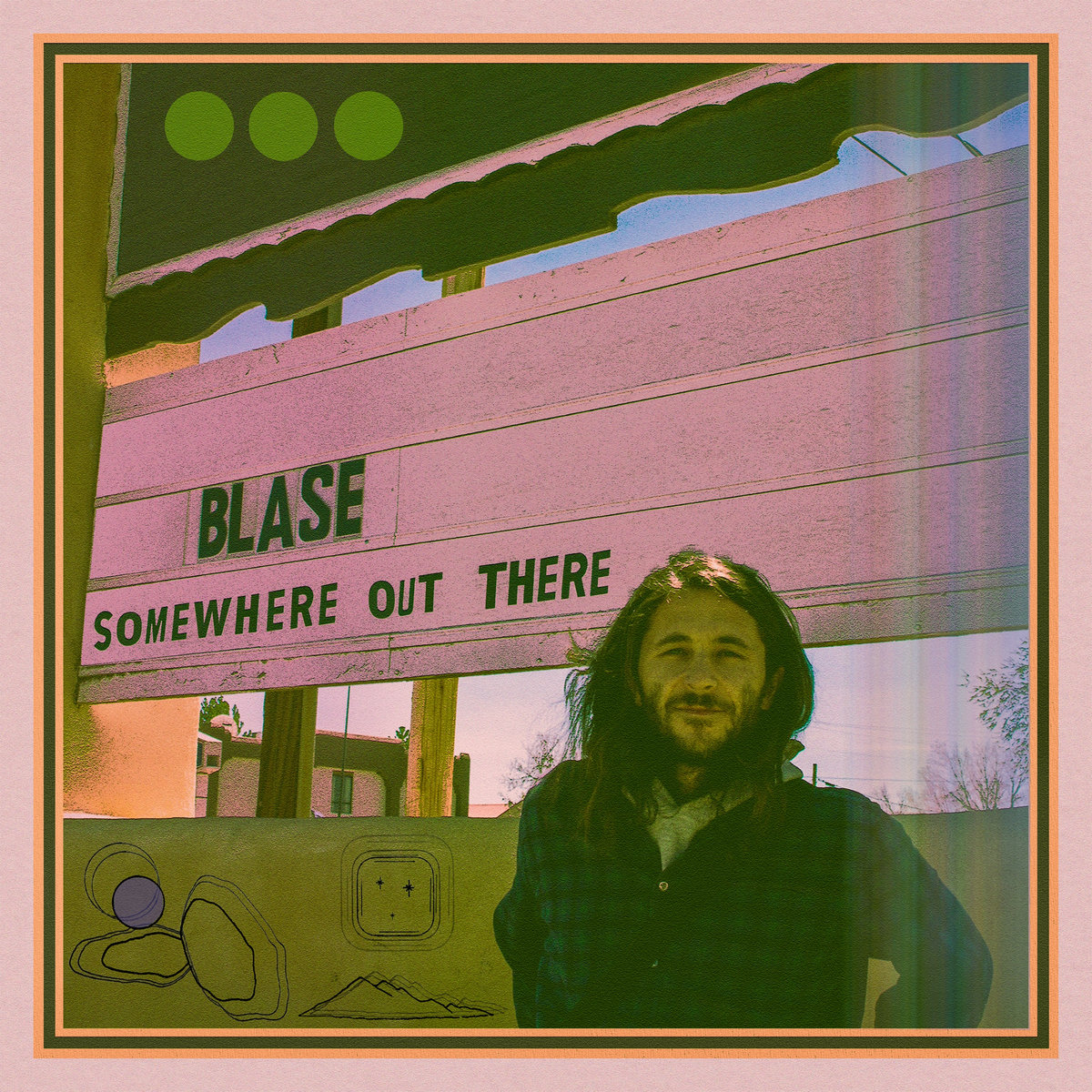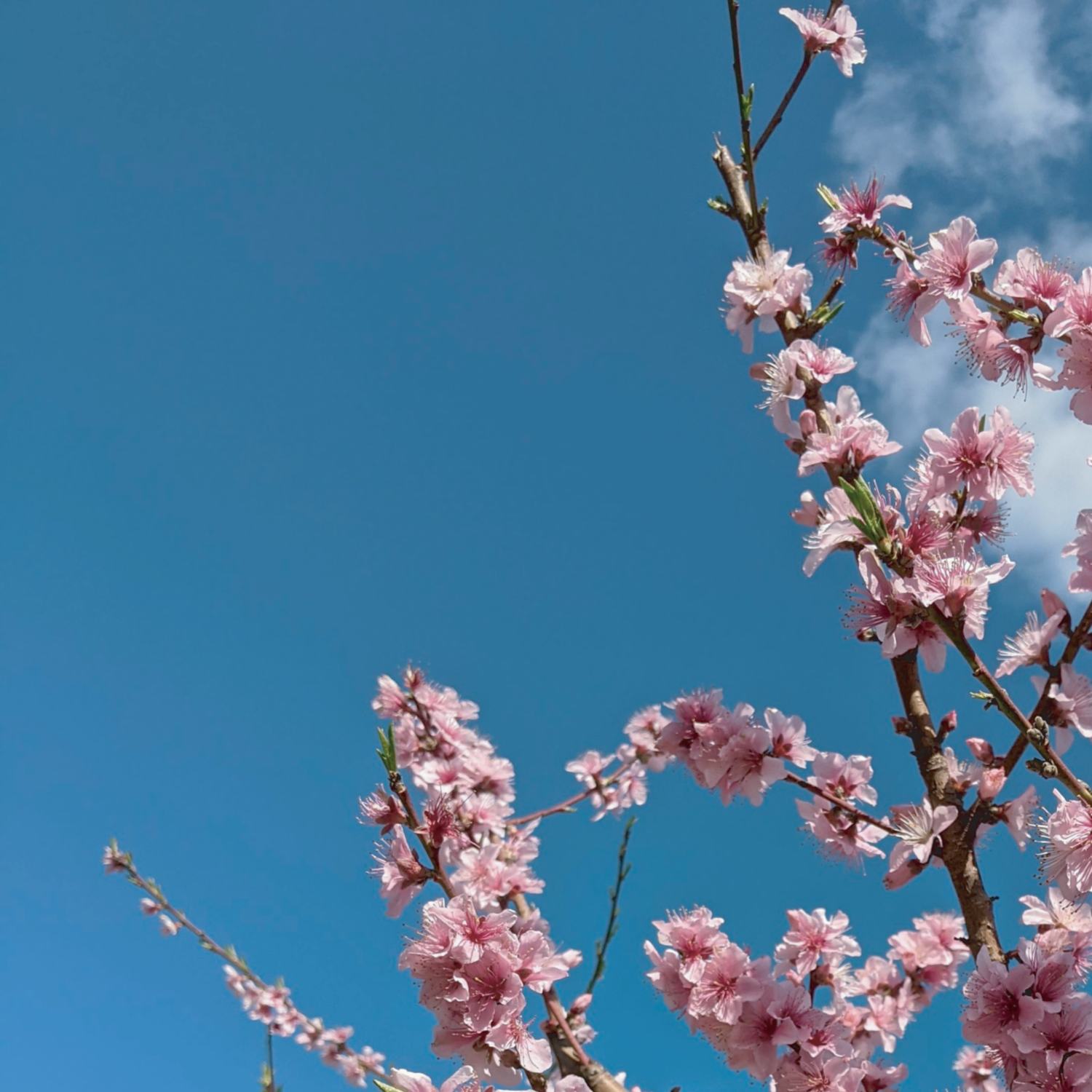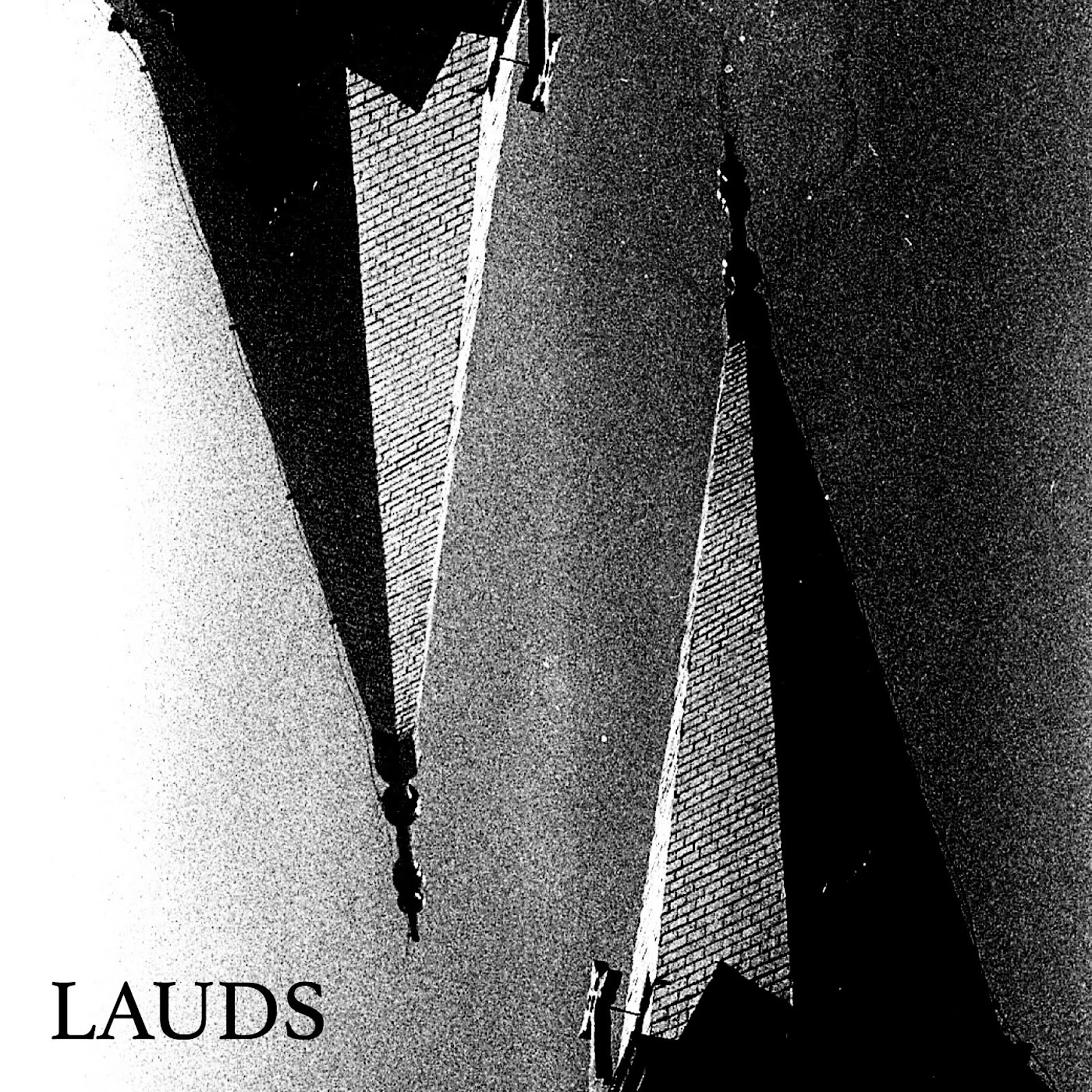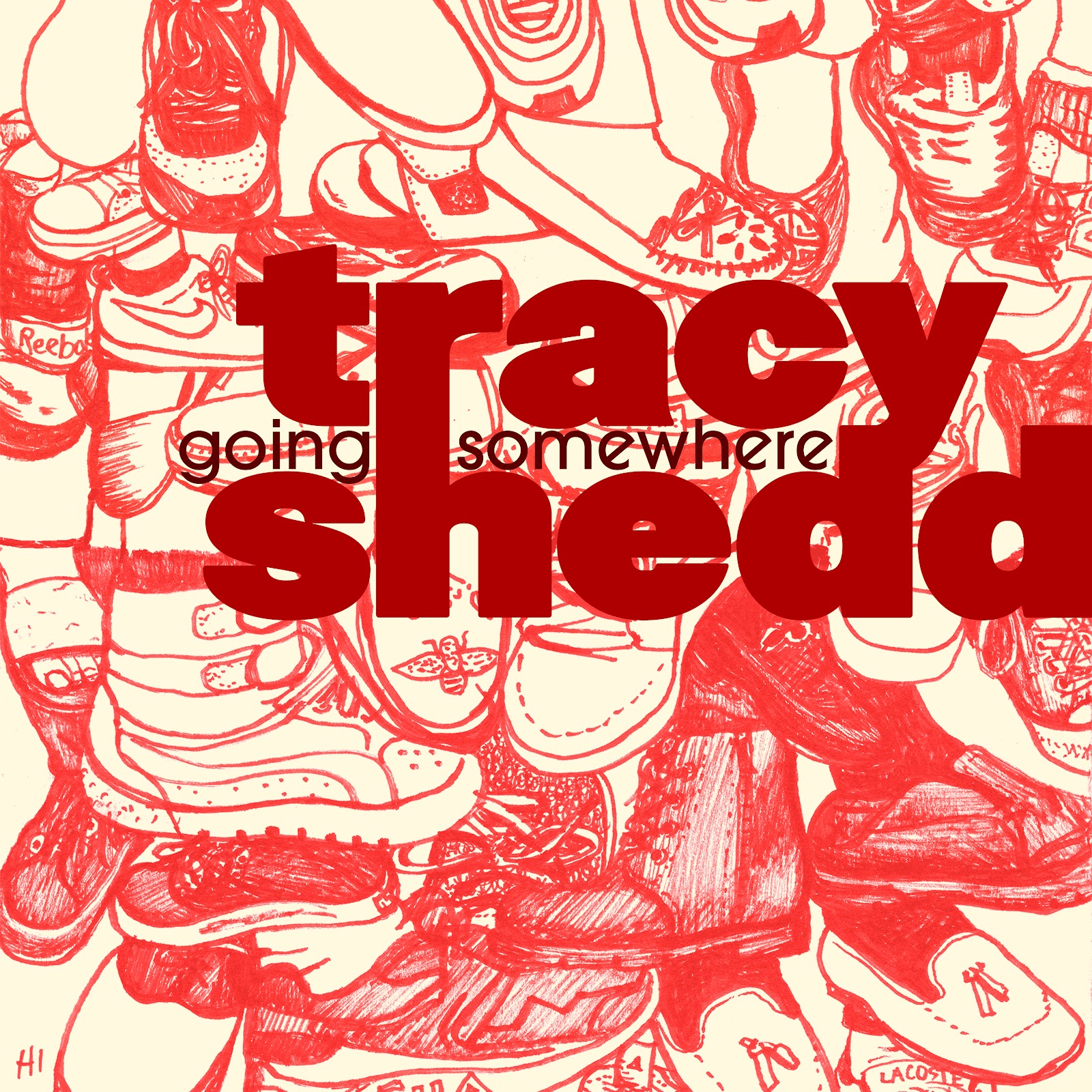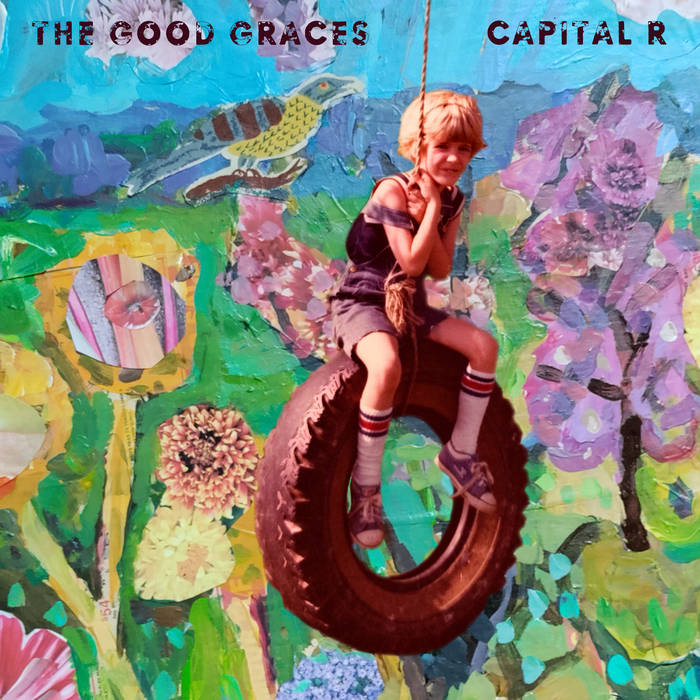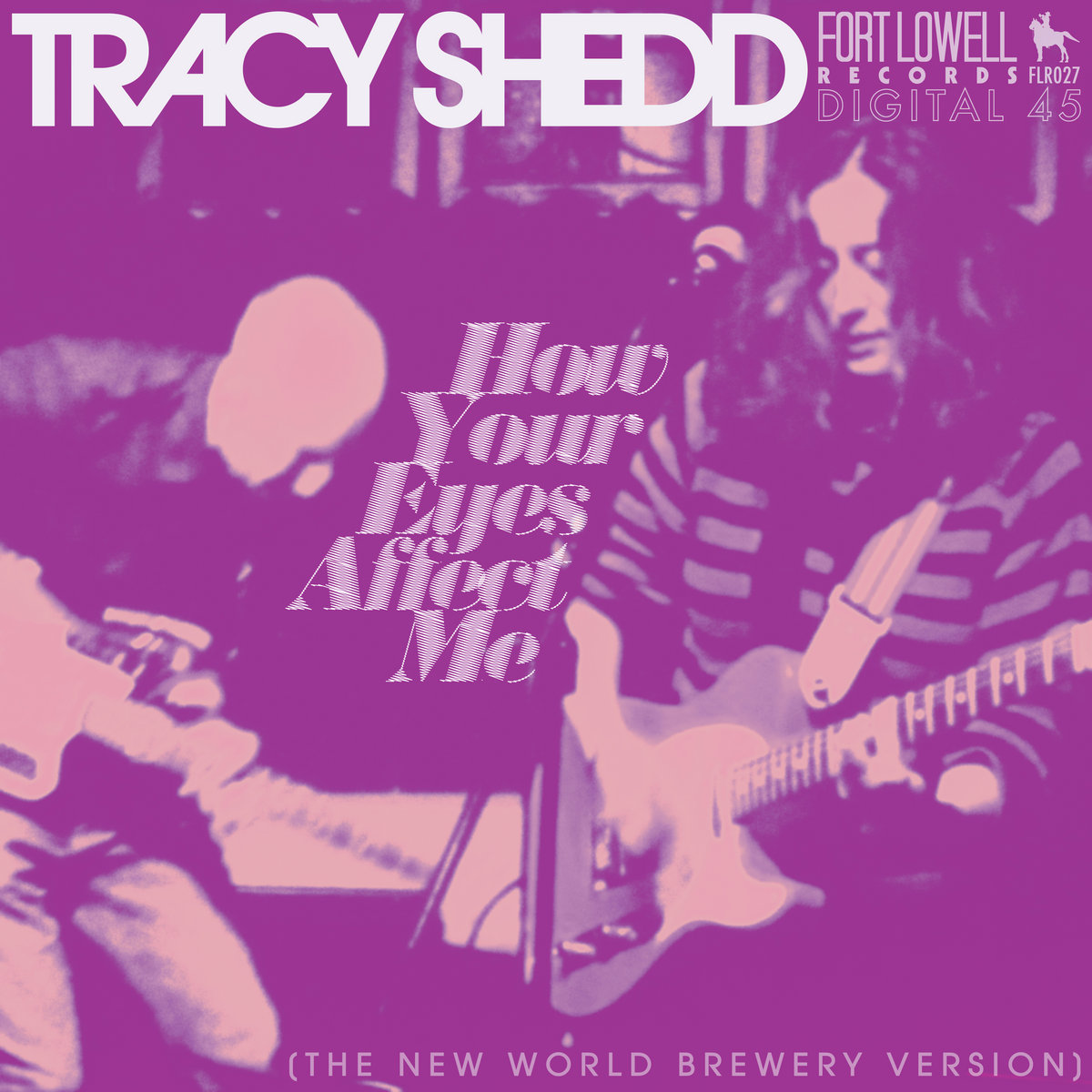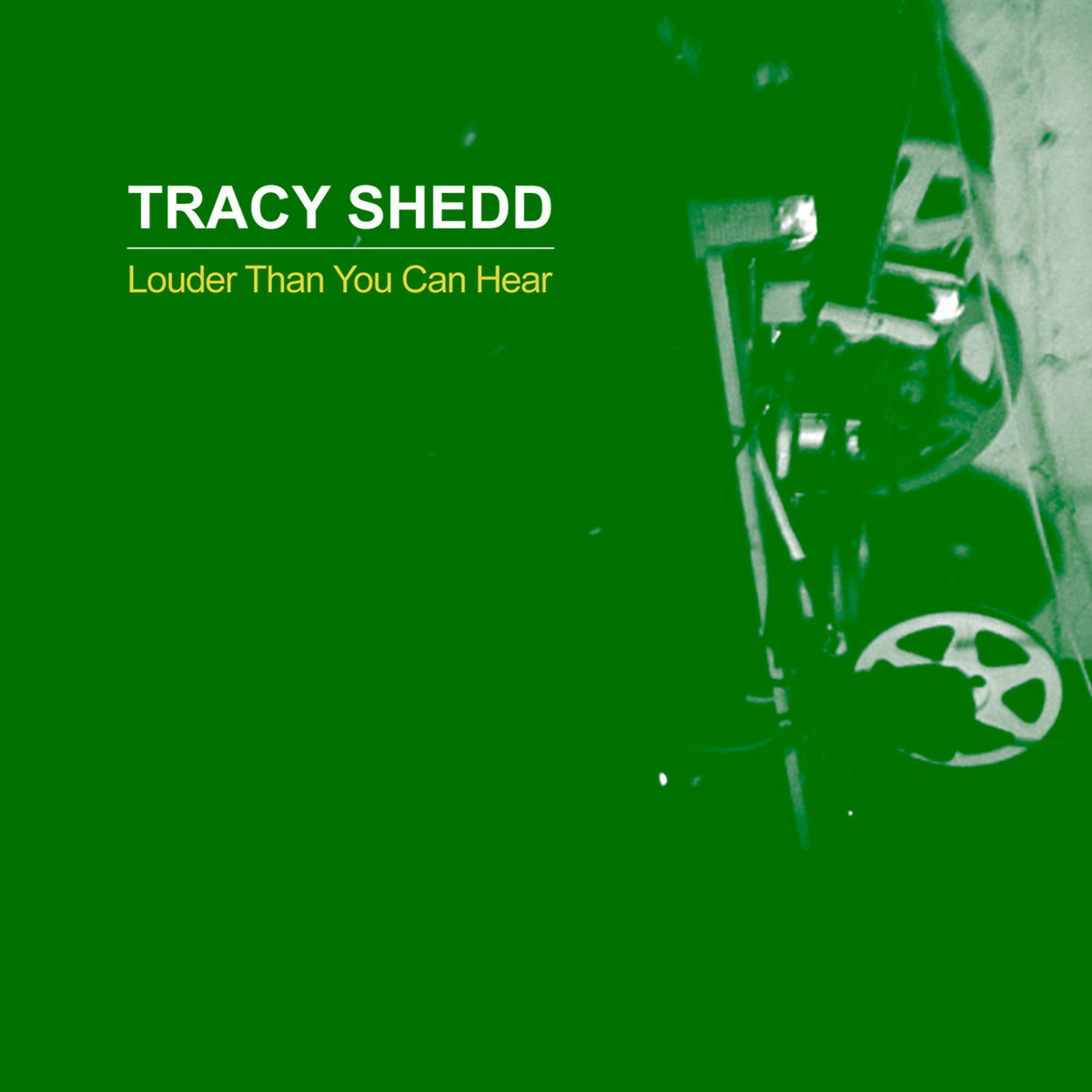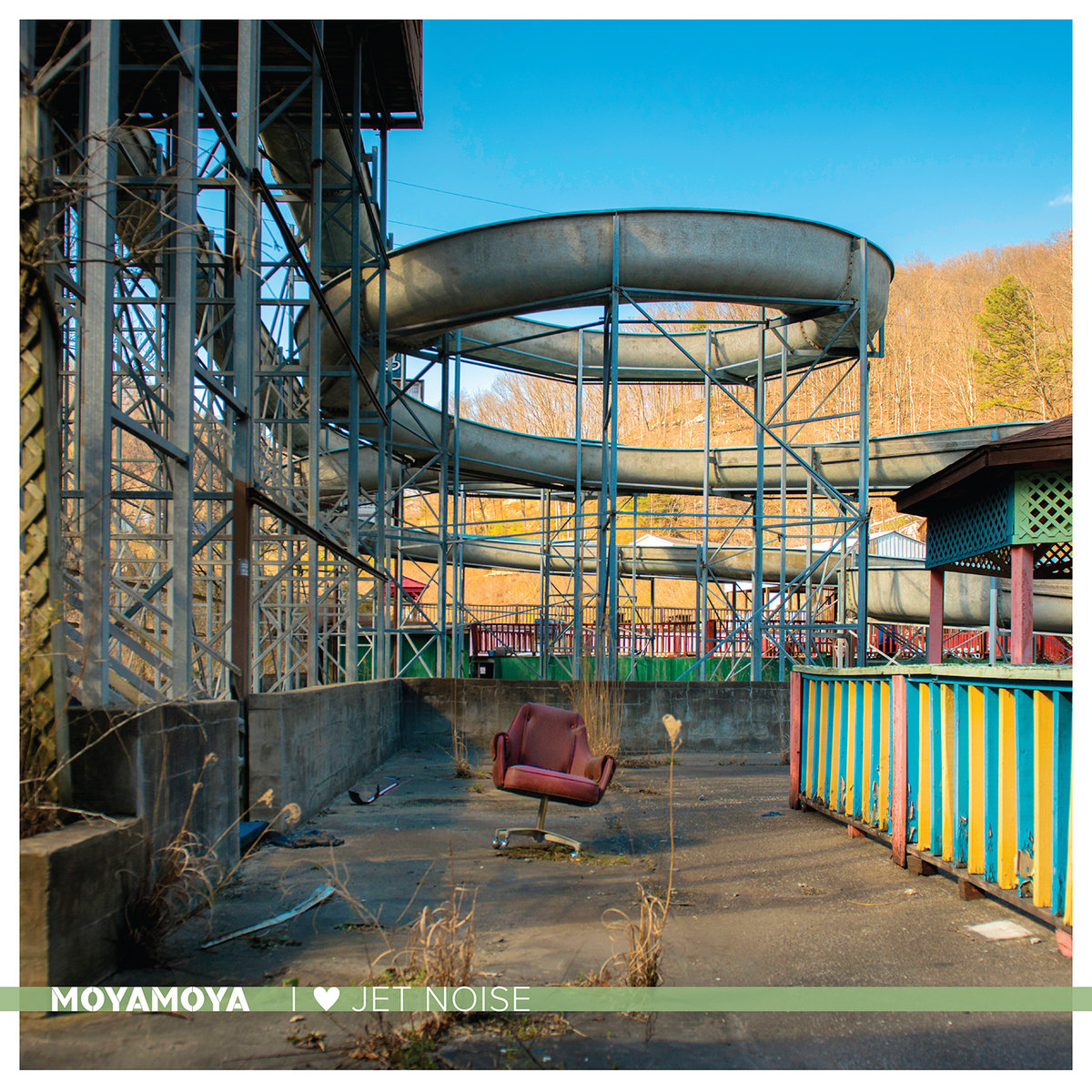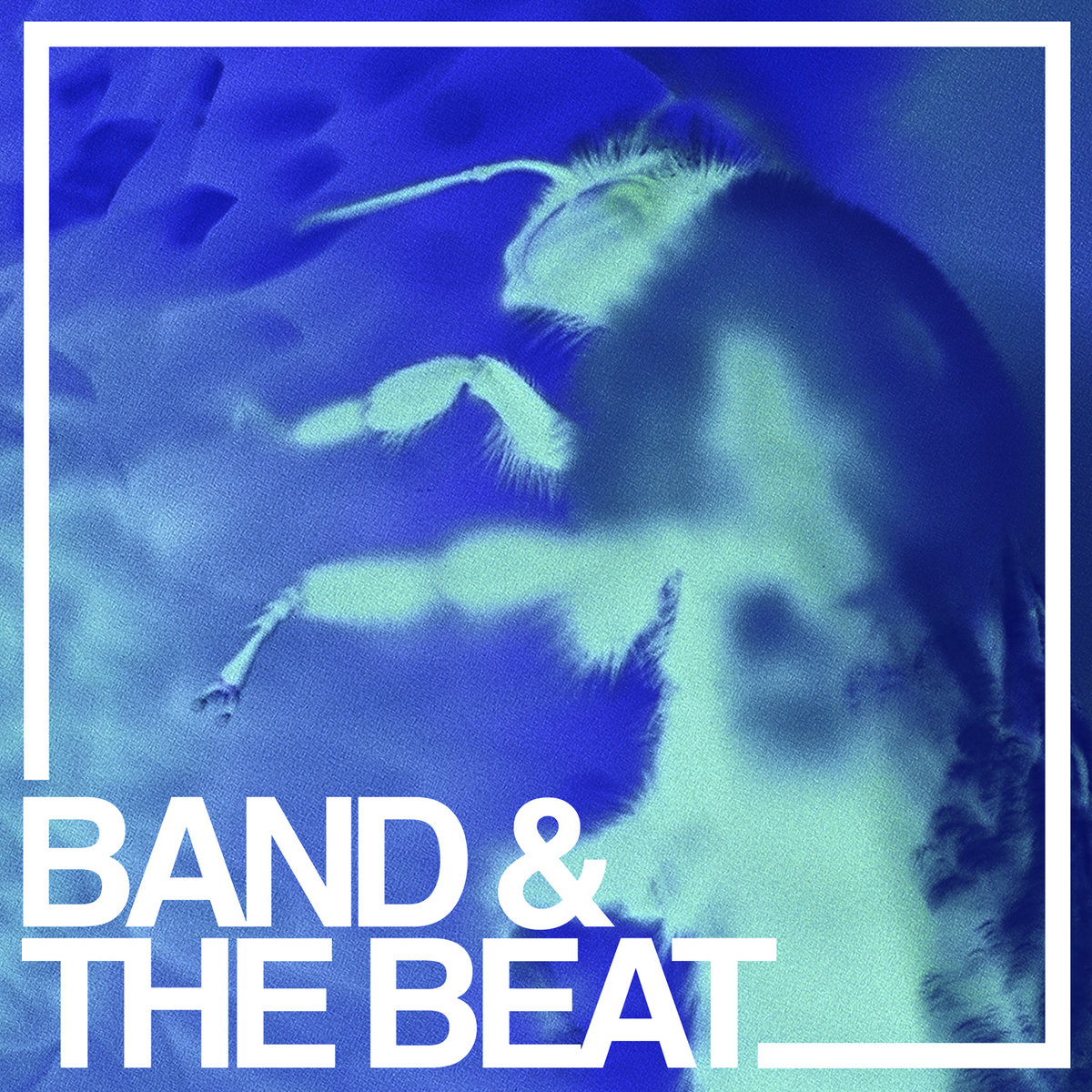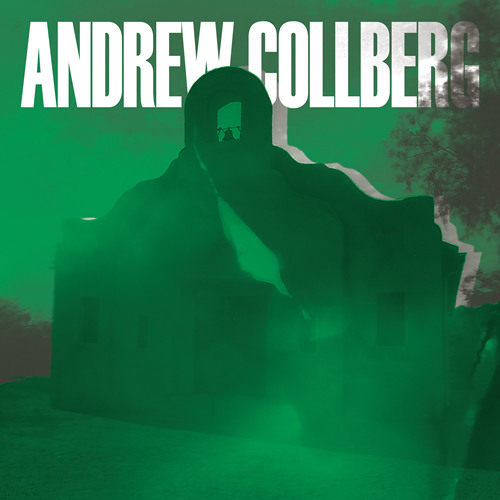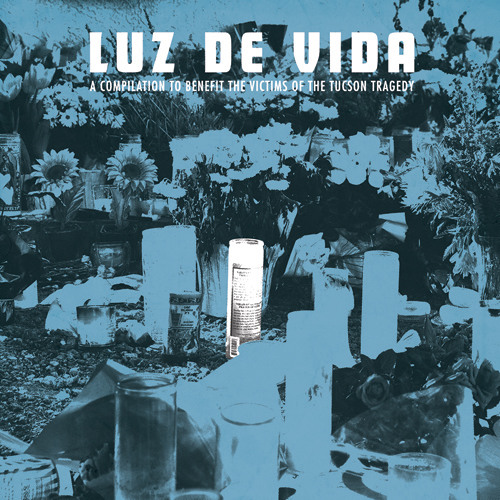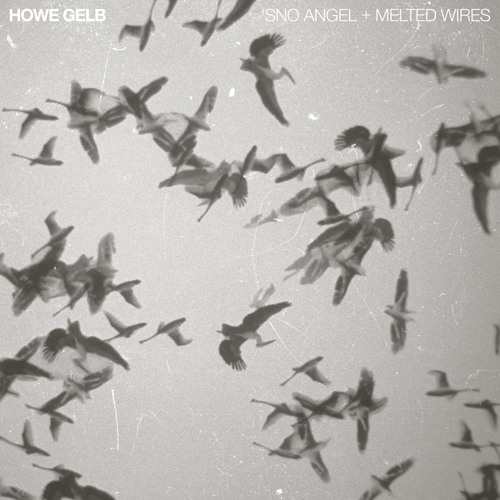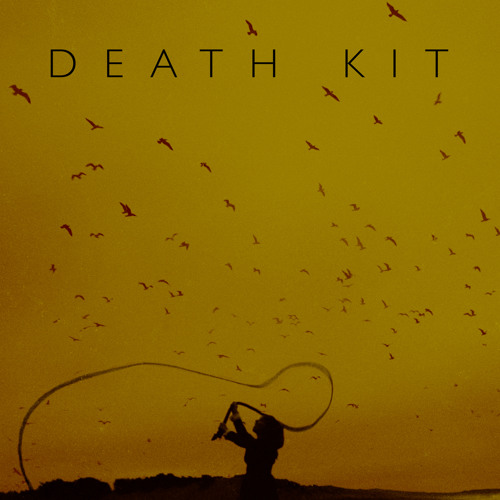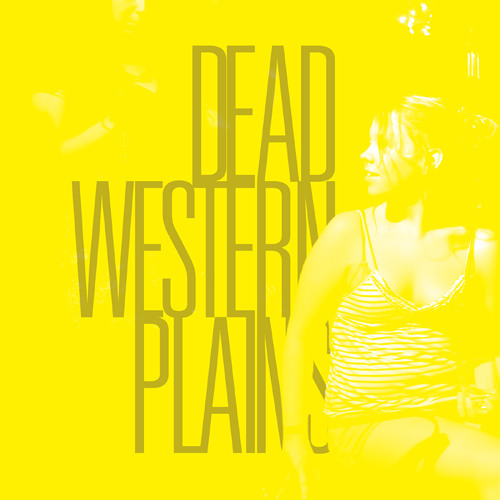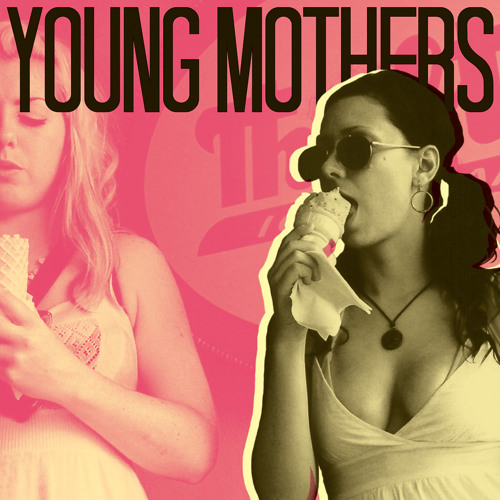Woodbury is no newcomer when it comes to writing about music. As the music editor for Aquarium Drunkard, the Arizona native is a veteran of interviewing both musicians and comedians alike. I spoke with Woodbury on the phone and what soon became clear in our chat was the writer who elicited humor from idiosyncratic voices of standups comedians and musicians in his writing. When it came to our interview, however, it was Woodbury who was answering questions, this time as a musician about his own forthcoming debut album Something Happening/Always Happening.
“I've played music pretty much my entire life,” says Woodbury. “Ever since I was a teenager I played guitar in my spare time or whatever, mostly just goofing around, but at various points I actually did have other bands.“
While Something Happening/Always Happening is Woodbury’s first solo release, it is not, however, his first time with music itself. Woodbury is also part of the band Kitimoto , whose album Vintage Smell is out on Fort Lowell, the same label set to release Something Happening/Always Happening.
“What was funny was this album was born out of me stepping into the role of a guy whose job is just add cool parts and make exciting little sounds and accompany his songs,” says Woodbury. “I found myself charged by this idea that I had spent so much of my youth trying to play music, whatever that means, in a really kind of self-conscious manner.”
Something Happening/ Always Happening synthesizes Woodbury’s different modes of self expression. It is an acoustic rock record with folk elements and sometimes island vibes reminiscent of both his interview subjects and album reviews of similar albums of the genre. It is also reflective of Woodbury’s interest in science fiction in that Something Happening/Always Happening presents music evocative of the 60s and 70s with a twist. Woodbury also creates the feeling of those past sounds emerging in the present.
“I’m playing with a lot of traditional kind of sounds and nostalgic sounds,” says Woodbury. “I wanted it to have a sense of that sort of idealized nostalgia but really playful about it. Some of the musical touches get to nod to that, and that was a part of it that was really fun for me.”
Though a native of Arizona, Woodbury insists that his album is not a desert record. “I didn’t want it to be the desert music with a capital DM because that’s kind of an aesthetic, and it’s definitely an appreciated one on my part,” says Woodbury. “The sound of the desert for me is Lee Hazelwood and Al Casey and Duane Eddy. So, it was like, I’ll lean into that too. I did want it to have a mid, Space Age kind of element to it, kind of as the Space Age is fading into folk rock. That’s definitely a sweet spot for me melodically and in my record collection. That was an important thing.”
Everyone brings their history with them in what they do, and even though Woodbury tapps into his experience as a writer, he also fully leaned into making music as a musician.
“I realized I had been pretty self-conscious in my approach to music and was very self-critical about a lot of stuff,” says Woodbury. “I was nervous about being cool or whatever! And the side benefit of the pandemic was it kind of just robbed me of the fear of being not cool enough to do something in a weird way. That's what this record really was born out of, that spirit.”
Woodbury adds, “Part of what makes for good art as I understand making it is not taking yourself too seriously.”
What follows is a discussion about each song from Something Happening/Always Happening. Woodbury’s debut solo album arrives in September.
- “Something Happening”
- “Wealth of the Canyon”
I thought a lot about sound design, and I'm a big fan of Arthur Russell and a big fan of him as a composer and a big fan of him as a thinker. I read this great book by Matt Marble where he was talking about Arthur Russell basically incorporating his mediation practices into his music. That’s one part of it. It’s a meditative record, but I also wanted there to be eagle caws and occasionally a breakbeat, you know what I mean? Just because that’s the world we live in.
I love paying attention to the way a place sounds and I wanted there to be some of that on the record. I got to embrace story telling without even having to even ascribe words to it. I could scene-set just by asking Zach [Toporek] to play a farfisa organ or Michael Krassner, who produced the record and is sort of the Obi Wan, to go off on guitar or whatever. A song like “Wealth of the Canyon,” which was built on a sample of Krassner and Danny Frankel and Stephen Hodges, one of my favorite drummers, we treated it as sample. I stripped it down and I arranged it with my buddy Zach. We added drums and [some] organ and added guitars, kind of like this whole thing. So yeah, it was another freeing moment where it was working with someone else, a real collaborator like that.
I’m based in the Sonoran Desert area. Phoenix is a part of it. The Phoenix-Metro area is like a defiant suburban sprawl against the Sonoran desert, which is not my favorite part about living here. “Wealth of The Canyon” absolutely is inspired by trips out into the desert, but specifically to a place called Sycamore Canyon.
[Sycamore Canyon] is this canyon where I've had all sorts of profound experiences from slicing my hand open on accident to just experiencing a mystical awakening, that feeling of true one-ness with the universe. I wanted that to be in the song, but I also wanted it to be funny because I also drink a lot of beer there with friends. That to me is the feeling of that song. We often separate those high and low experiences, but they’re all part of it. I’m really so proud of that song. It’s one of my favorites. It’s one where I just sing on it. I didn’t write the chords or whatever. I got to feel like Mick Jagger!
When people talk about desert movies, of course they’re thinking about Paris, Texas or Until The End of the World, these Wim Wenders movies. I absolutely love that stuff. That’s a huge influence on me. I won’t deny it is. I also think of Bevis and Butthead Do America or whatever. That’s also a style I like. I think I wanted it to have a sense of that sort of idealized nostalgia but really playful about it. Some of the musical touches get to nod to that, and that was a part of it that was really fun for me and made me feel like it wasn’t because I didn’t want to be the guy who wasn’t taking itself too seriously.
- “Cruel in Time”
Part of the whole thing of not taking yourself seriously is allowing yourself to open up to people too and playing with them, because playing music with people is just such a great thing. The bass player on two songs, Zane Gillum, I’ve been playing with this dude for more than 20 years. We play together on Kitimoto . We literally learned how to play the guitar together in Coolidge, Arizona. It just felt so good. I was just like, “I’m not gonna beat myself up. I’m not gonna be so serious about this.” That was crucial, and I also wanted to make sure it sounded like me. For good or bad, this is me.
- “The Road That Knows No Law”
I just started thinking about the I-17, which is a freeway here. It’s not hard for that song to be post-apocalyptic. I found myself sort of imagining this weird kind of world and that was the sound of it and I was really excited.
I was thinking of the outlaw. Judee Sill is one of my favorite songwriters, and I love the way she talks about the outlaw, the person who is outside of the line. Obviously, we have been thinking so much with concepts of the law as a society as we’re taking fascistic turns often in terms of these ideas of the law. I wanted to play with that archetype and the sort of desert Southwest Apocalypse, Terminator 2 style. Krassner played such cool guitar on it. I really like that one. It’s a weird one.
- “Guesswork at Sundown”
That was a meditation jam with me, Zach, and Zane, the guy who I’d mentioned I’ve been playing with for the last couple decades. We were sort of doing this endless summer kind of thing in our head. We just played that loop for a long time and let it roll and selected a little bit of that. Krassner re-arranged and brought in Larraine Kaizer-Viazovtsev. She did that beautiful raga like string arrangement, sort of this weird L.A. noire thing, but also very much about setting up camp as your daylight is running out.
There were words to it and they felt extraneous. I was kind of like, “Well, I don’t want to necessarily put an instrumental.” “Something Happening” and “Always Happening” are pretty limited vocally, but they both have words. So I was kind of like, “I don’t know if i want a straight up instrumental on the record.” Ultimately, it felt like a nice thing to do.
Krassner, independent of me mentioning the Verde River and places like Sycamore Canyon, was like, “This really gives me the feeling of the 1970s.” He grew up here too. 1970s on the Verde River on a Friday night. I could imagine these Phoenix kids driving in their Camaros or whatever to the Verde River. I was like, “That’s a good image.” So, when he said that it was a weird metaphysical cue that that one was good. I stopped thinking if I whether or not I should come up with words.
- “Clarifying Word”
Krassner plays, again, beautiful piano on it. His piano work on it is gorgeous. He really brought so much care and skill to the record and accentuated my melodies so honestly. He was a real generous musical ear. The fact that the record sounds as good as it does is entirely due to him and the other guys who play on it with me, even though a fair amount of it was me in my room. I don’t want to not give myself any credit, but also think they deserve much more for sure.
- “Halfway to Eloy”
I did grow up in Pinal County and I do feel like there is a sense of this. You have to drive through Pinal County to get to Oracle where Kitimoto recorded. Driving that road with Zane down for the Kitimoto record, before this one even started, I think those trips were real inspirational to the record. There is a sense of place about it. It is sort of a Pinal county record in a weird way.
You create your own world in your head. That’s a lot of what Dick writes about, and with something like this, you have this beautiful excuse to do so and to populate with all sorts of weird scenes or whatever. That one was a lot of fun. That’s a good collaboration with Zach, especially on that back half, and then with Zane really holding on that bass on the first one. That’s a fun one.
- “Addressed By The Multi-Formed Image”
- “Always Happening”
The loop of the Link Cromwell thing also puts it into a sort of tape loop setup which lends itself well to the psych rock thing, which again, I let it go. It was incredible because I reached out to him. When it comes to incorporating a sample, it can be difficult and a lot of people opt to not try to contact the rights holder. I decided I was going to and reached out to him and he was kind enough to respond and allow for it to happen and he seemed to like the song. If the guy who produced Nuggets doesn’t hate the song, who am I to argue. I love that song. It’s a lot of fun. We’ll probably release it at some point, but there’s an extended cut too that goes on even longer and it’s beautiful! That’ll probably come out when the single comes out.
I remember being a teenager in Coolidge and learning how to play guitar and reading something in Guitar World that was like, one of the best things you can do is leave the audience wanting more. So, I did want to put a really cool one on the end to reward people who spent time listening to the record. It was that way for me. I always sort of knew that the book ends were going to be “Something Happening” and “Always Happening.” This was such a fun project and I’m really excited it’s getting out and that some people will hear it. It’s a pretty fun thing to finally be on this side of sharing something.







